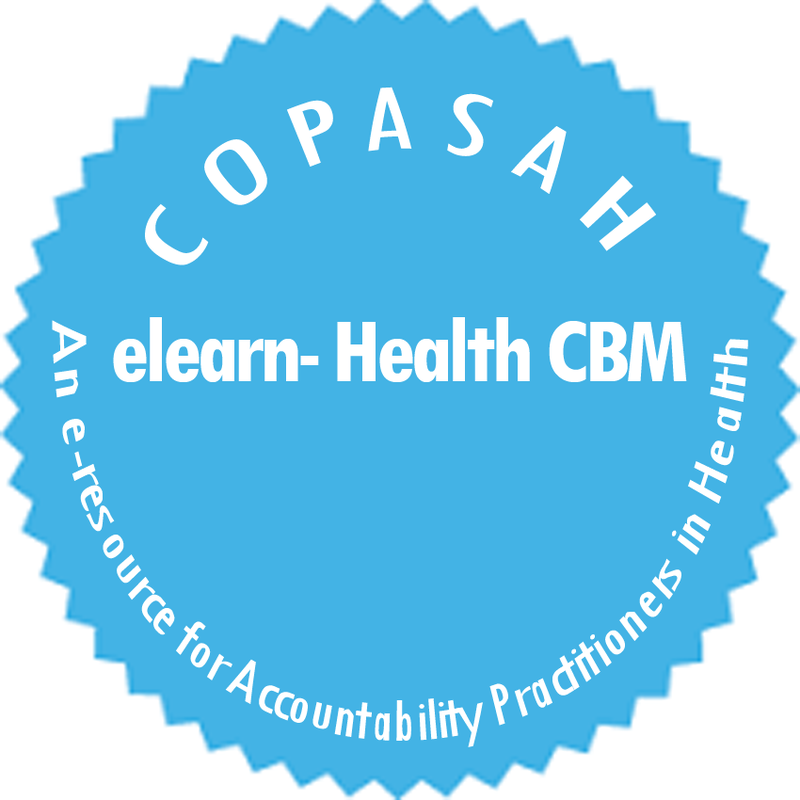
|
|
Strengthening Community Focused, Primary Healthcare-Oriented
Approaches to Social Accountability and Action
Approaches to Social Accountability and Action
Experiences from Tanzania and Zimbabwe show that access to resources and uptake of services at PHC level need both an informed and organised community, as well as a willing authority to cooperate, engage and act upon community health concerns.
|
Barbara Kain, Greysmo Mutashobya, Jitihada Baraka, Calvin Fambirai, Tatenda Chiware, Mevice Makandwa & Masimba Nyamucheta
|
|
Background
Community participation and social empowerment are considered important in ensuring health systems remain accountable to the populations they serve. However, unless health systems are oriented towards comprehensive primary healthcare, and are people-centred and publicly led, social differentials in access to healthcare interventions will remain high irrespective of the level of community involvement. People from poorer households and marginalised communitieswill be unable to afford or access healthcare, with little or no social power to direct resources or improve services at the community level. This calls for more explicit attention to how communities can organise themselves to defend their right to health. It calls for a more active citizenry who understand and can assert their own needs and interests, and who have the space, skills and authority to articulate how their health systems are organised, financed and reached by communities. Community and health worker meetings, and resources need to be in place to provide for dialogue with sections of the health system to ensure that these rights are met. |
A view of Cassa Banana, the informal settlement
|
In this context, communities have an important role to play in monitoring the progress and enhancing accountability in the interests of improved health and greater equity and social justice for health.
Taking this into consideration, the Training and Research Support Centre (TARSC) Zimbabwe, in cooperation with the east and southern Africa region of COPASAH and the Regional Network for Equity in Health in east and southern Africa (EQUINET) undertook a programme to explore ways to strengthen social voice, agency and demand for improved resourcing and functioning of the primary healthcare system (PHC) in the region. This programme showed over 10 years of work involving 20 studies in nine countries in the pra4equity network within EQUINET and on other areas of social power and organisation of PHC in EQUINET (see www.equinetafrica.org), and the more recent learning in COPASAH on issues of social accountability.
The EQUINET studies have shown that using participatory reflection and action (PRA) processes can increase awareness within communities to support early detection of and response to problems and uptake of services. It can also activate joint mechanisms that increase cooperation and trust between communities and health systems. And the 2012 EQUINET Regional Equity Watch showed that bringing resources to the primary levels of the health system is important to close the gaps in service access and coverage. The question that the COPASAH/ EQUINET programme wanted to address was whether a structured, participatory approach towards the organisation of community and frontline health worker’s evidence and experience could lead to increased attention and allocation of resources forcomprehensive primary care and community health services, and for the functioning and uptake of those services. The following two case studies, funded by COPASAH, with technical input from TARSC in EQUINET, set out to explore this question.
PRA Approaches towards Social Accountability and Action: Case studies from Tanzania and Zimbabwe
Tanzania:Health Promotion Tanzania (HDT) and Ifakara Health Institute, Tanzania (IHI) are working on a community based distribution (CBD) programme in Bukirira Village in north west Tanzania, a part of the country that records high fertility rates, low contraceptive use, and a high proportion of teenage pregnancies. Despite many problems in initiating the programme, CBD is
recognised as an effective strategy for strengthening PHCprovision of family planning services using community structures that include home visits bytrained agents with the aim of promoting the use of safe contraceptive methods.
The aim of this programme was to use PRA to assist in revitalising the work of the CBDs in Bukiriro Village, while also identifying strategies for improved dialogue, action and accountability between community representatives, CBDs and health workers.This involved identifying and prioritisingfamily planning health needs in Bukiriro, and the skills, resources, and actions needed to reinstate the CBD programme. With support from the nearest health facility and other key stakeholders, the Bukiriro Health Committee organised atraining programme for the CBDs, successfully negotiated with local authorities for CBDs to receive a small monthly stipend, and arranged for the District Health Management Team to assign two additional full time health workers at Bukiriro Health Centre in order to ease the workload there. Progress measured against a set of progress markers developed by the community at the start of the programme, and review of health facility records, showed significant improvements in the delivery and uptake of family planning services.
Zimbabwe: The programme in Zimbabwe, coordinated by the Zimbabwe Association of Doctors for Human Rights (ZADHR), Zimbabwe National Network of People Living with HIV (ZNNP+) and TARSC, is based in Cassa Banana. It is a marginalised informal settlement of 300 families situated approximately 40 km north of Harare, the capital of Zimbabwe. Local authorities have failed to provide basic health and social services in Cassa Banana,which adds to the myriad of
problems residents of the settlement are facing. Residents have limited access to clean water and ablution facilities, and the closest public health centre is 20 km away. The programme began in February 2014, with the community using PRA approaches to identify major health problems of diarrhoea, gastrointestinal parasites and HIV. A Community Health Committee (CHC) was formed to organise community actions to address priority health problems and the underlying environmental health concerns. The CHC members invited representatives of related councils to attend the community meetings anddiscuss the roles and responsibilities of the public representatives. As of July 2014, no local authority had responded to the invitation sent out by the CHC. The CHC developed a detailed Action Plan for improving the water and sanitation situation, strengthening HIV prevention and support services, and building alliances with local government, to ensure that their basic health rights are met.
Critical reflections
The programme attempts to gauge whether improved community engagement through PRA processes can lead to better social accountability, increased access to resources at the PHC level and improved uptake of services.
The Tanzanian case study is easier to assess. Since the beginning of the programme, health authorities were willing and interested in engaging with the community to improve access to services. Health facility staff also had a vested interest in reinstating the CBD programme since it was likely to minimise the work load at the facility. This resulted in a series of constructive dialogues between community. representatives, CBDs and health workers, leading to improved access to quality health services, greater trust inthe health system at community level, and greater accountability on the part of the health workers.
Furthermore, authorities at district level committed to providingfunds in the form of monthly stipends for the CBDs, as well as increase the number of staff at the PHC facility. The more organised voice of community representatives in demanding the revitalisation of the CBD programme played an important role in catalysing these successes.
The programme in Cassa Banana, Zimbabwe has also seen some positive developments, even though it has tillnow failed to engage with the duty bearers to clarify roles and responsibilities. The programme has helped to increase levels of awareness and advocacy on the rights of the Cassa Banana community. It has also led to a much greater level of community organisation and planning, and a renewed energy to find solutions to their problems. Community strategies have been both practical and strategic: for example, to buildmore toilets and fix the water pipes, while also approaching both public and private stakeholders to gain their recognition and support. It is too early to assess whether these actions will lead to a positive engagement with local authorities. Considering the lack of overall accountability in the Zimbabwean socio-economic and political arena, the leaders in Cassa Banana are under no illusion that this is likely to be a long process.
More generally, these case studies have shown to date that:
Taking this into consideration, the Training and Research Support Centre (TARSC) Zimbabwe, in cooperation with the east and southern Africa region of COPASAH and the Regional Network for Equity in Health in east and southern Africa (EQUINET) undertook a programme to explore ways to strengthen social voice, agency and demand for improved resourcing and functioning of the primary healthcare system (PHC) in the region. This programme showed over 10 years of work involving 20 studies in nine countries in the pra4equity network within EQUINET and on other areas of social power and organisation of PHC in EQUINET (see www.equinetafrica.org), and the more recent learning in COPASAH on issues of social accountability.
The EQUINET studies have shown that using participatory reflection and action (PRA) processes can increase awareness within communities to support early detection of and response to problems and uptake of services. It can also activate joint mechanisms that increase cooperation and trust between communities and health systems. And the 2012 EQUINET Regional Equity Watch showed that bringing resources to the primary levels of the health system is important to close the gaps in service access and coverage. The question that the COPASAH/ EQUINET programme wanted to address was whether a structured, participatory approach towards the organisation of community and frontline health worker’s evidence and experience could lead to increased attention and allocation of resources forcomprehensive primary care and community health services, and for the functioning and uptake of those services. The following two case studies, funded by COPASAH, with technical input from TARSC in EQUINET, set out to explore this question.
PRA Approaches towards Social Accountability and Action: Case studies from Tanzania and Zimbabwe
Tanzania:Health Promotion Tanzania (HDT) and Ifakara Health Institute, Tanzania (IHI) are working on a community based distribution (CBD) programme in Bukirira Village in north west Tanzania, a part of the country that records high fertility rates, low contraceptive use, and a high proportion of teenage pregnancies. Despite many problems in initiating the programme, CBD is
recognised as an effective strategy for strengthening PHCprovision of family planning services using community structures that include home visits bytrained agents with the aim of promoting the use of safe contraceptive methods.
The aim of this programme was to use PRA to assist in revitalising the work of the CBDs in Bukiriro Village, while also identifying strategies for improved dialogue, action and accountability between community representatives, CBDs and health workers.This involved identifying and prioritisingfamily planning health needs in Bukiriro, and the skills, resources, and actions needed to reinstate the CBD programme. With support from the nearest health facility and other key stakeholders, the Bukiriro Health Committee organised atraining programme for the CBDs, successfully negotiated with local authorities for CBDs to receive a small monthly stipend, and arranged for the District Health Management Team to assign two additional full time health workers at Bukiriro Health Centre in order to ease the workload there. Progress measured against a set of progress markers developed by the community at the start of the programme, and review of health facility records, showed significant improvements in the delivery and uptake of family planning services.
Zimbabwe: The programme in Zimbabwe, coordinated by the Zimbabwe Association of Doctors for Human Rights (ZADHR), Zimbabwe National Network of People Living with HIV (ZNNP+) and TARSC, is based in Cassa Banana. It is a marginalised informal settlement of 300 families situated approximately 40 km north of Harare, the capital of Zimbabwe. Local authorities have failed to provide basic health and social services in Cassa Banana,which adds to the myriad of
problems residents of the settlement are facing. Residents have limited access to clean water and ablution facilities, and the closest public health centre is 20 km away. The programme began in February 2014, with the community using PRA approaches to identify major health problems of diarrhoea, gastrointestinal parasites and HIV. A Community Health Committee (CHC) was formed to organise community actions to address priority health problems and the underlying environmental health concerns. The CHC members invited representatives of related councils to attend the community meetings anddiscuss the roles and responsibilities of the public representatives. As of July 2014, no local authority had responded to the invitation sent out by the CHC. The CHC developed a detailed Action Plan for improving the water and sanitation situation, strengthening HIV prevention and support services, and building alliances with local government, to ensure that their basic health rights are met.
Critical reflections
The programme attempts to gauge whether improved community engagement through PRA processes can lead to better social accountability, increased access to resources at the PHC level and improved uptake of services.
The Tanzanian case study is easier to assess. Since the beginning of the programme, health authorities were willing and interested in engaging with the community to improve access to services. Health facility staff also had a vested interest in reinstating the CBD programme since it was likely to minimise the work load at the facility. This resulted in a series of constructive dialogues between community. representatives, CBDs and health workers, leading to improved access to quality health services, greater trust inthe health system at community level, and greater accountability on the part of the health workers.
Furthermore, authorities at district level committed to providingfunds in the form of monthly stipends for the CBDs, as well as increase the number of staff at the PHC facility. The more organised voice of community representatives in demanding the revitalisation of the CBD programme played an important role in catalysing these successes.
The programme in Cassa Banana, Zimbabwe has also seen some positive developments, even though it has tillnow failed to engage with the duty bearers to clarify roles and responsibilities. The programme has helped to increase levels of awareness and advocacy on the rights of the Cassa Banana community. It has also led to a much greater level of community organisation and planning, and a renewed energy to find solutions to their problems. Community strategies have been both practical and strategic: for example, to buildmore toilets and fix the water pipes, while also approaching both public and private stakeholders to gain their recognition and support. It is too early to assess whether these actions will lead to a positive engagement with local authorities. Considering the lack of overall accountability in the Zimbabwean socio-economic and political arena, the leaders in Cassa Banana are under no illusion that this is likely to be a long process.
More generally, these case studies have shown to date that:
- Increased access to resources and improved uptake of services at PHC level needs both an informed and organised community, as well as a willingness on the part of those who have the power and decision-making authority to cooperate, engage and act upon community health concerns.
- The Bukiriro case study strengthens the view that if health personnel at PHC level are capacitated, supported and provided with more resources to deliver on plans that have been mutually agreed with community representatives, then they are more likely to feel satisfied withtheir work and to be more responsive to community needs.
- As highlighted in Cassa Banana, even when duty bearers are not fulfilling their obligations,participatory approaches can strengthen the voice and agency of communities, moving people to look critically at their situation and to act together. These are important influences in creating a demand for recognition of their rights, and the need for social change and transformation. Over the next few months, the organisations involved in this programme both in Cassa Banana, Zimbabwe and Bukiriro Village,Tanzania, will continue to track progress and documentlearning about longer-term influences on resourcing and functioning of primary care systems.
ABOUT AUTHORS
Barbara Kaim (Programme Manager) and MeviceMakandwa (Information Officer) are at the Training and Research Support Centre, Zimbabwe. Barbara is an active member of the pra4equity network in EQUINET and a member of the COPASAH Steering Committee. See www.tarsc.org
Greysmo Mutashobyo is Programme Officer at Health Promotion Tanzania (HDT) and Jitihada Baraka is Research Officer from Ifakara Health Institute (IHI) in Tanzania. Seewww.hdt.or.tz and www.ihi.or.tz
Calvin Fambirai (Director) and Tatenda Chiware (Programme Officer) are at the Zimbabwe Association of Doctors for Human Rights (ZADHR). MasimbaNyamucheta is from the Zimbabwe National Network of People Living with HIV (ZNNP+). See www.zadhr.org and www.znnp.org.zw
Barbara Kaim (Programme Manager) and MeviceMakandwa (Information Officer) are at the Training and Research Support Centre, Zimbabwe. Barbara is an active member of the pra4equity network in EQUINET and a member of the COPASAH Steering Committee. See www.tarsc.org
Greysmo Mutashobyo is Programme Officer at Health Promotion Tanzania (HDT) and Jitihada Baraka is Research Officer from Ifakara Health Institute (IHI) in Tanzania. Seewww.hdt.or.tz and www.ihi.or.tz
Calvin Fambirai (Director) and Tatenda Chiware (Programme Officer) are at the Zimbabwe Association of Doctors for Human Rights (ZADHR). MasimbaNyamucheta is from the Zimbabwe National Network of People Living with HIV (ZNNP+). See www.zadhr.org and www.znnp.org.zw








